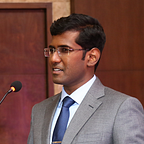The 7 Habits of Highly Effective People
This highly influential bestseller was first published over 25 years ago. I had wanted to read this book for a long time and I finally got around to it last month. While the book can be applied to both personal and professional goals, I read and interpreted it mostly from a professional viewpoint.
The following three goals, the first three in fact struck a chord with me and I have detailed them below
Be Proactive
I was a very reactive person early on in my career but I have learned from watching others and through experience to be more proactive. This chapter introduces the concept of circle of influence vs circle of concern. Reactive people waste time focussing on things that they cannot control (circle of concern) because it is easier to do. This is a bad habit that I occasionally fall into as well and I was reminded to stick to focussing on what I can control (circle of influence).
For example as a PM, it may be tempting to blame marketing, sales, or someone else for a missed deadline but that will achieve absolutely nothing other than alienating them. Focussing on being more efficient during scoping and development (circle of influence) would actually help in shipping features faster.
Begin with the end in mind
This chapter exhorts you to have a plan and work backwards with that plan in mind rather than mindlessly going about your daily life. For instance, rather than hope that you will be promoted to the next level after a few years at your current level, actively understand the skills that will be required and work towards acquiring them. (I did this as soon as I read this chapter and now I have a plan for the next phase of my career).
Put first things first
Having identified goals and the steps to take to achieve those goals, the third principle is about prioritising them. As a PM, there are a ton on things that you could work on. Deciding what is important is what isn’t is a decision that individuals must actively take in order to become effective. This chapter also asks a question that I found quite interesting — What is the one thing that you are not doing that you could do in your personal or professional life that would have the most positive impact? In my case, I decided that the answer was to read more books and become better at networking. I am an introvert and the second goal will not come naturally, but having identified it as critical, I have made a plan to get better at it.
I did not find any of the other principles as compelling as the first three. This book is not one to be read, it is to be applied. Therefore, I highly recommend that you reserve a complete weekend for it, one day to read and another to apply the teachings to help you become a more effective person.
